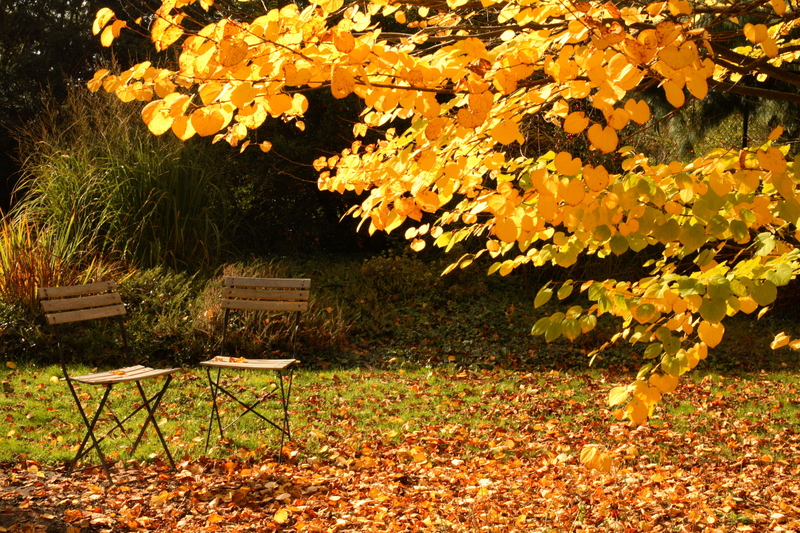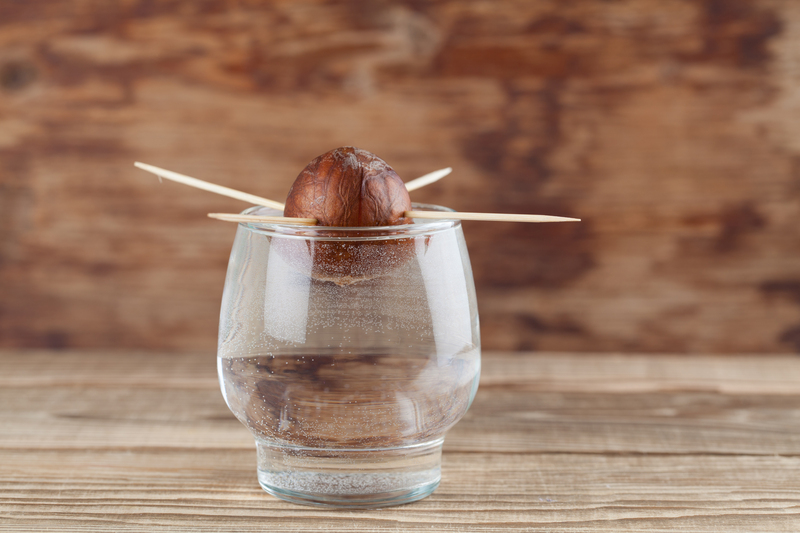Gardening: Protecting Our Planet One Plant at a Time
Posted on 25/09/2025
Gardening: Protecting Our Planet One Plant at a Time
Have you ever wondered how your backyard, balcony, or even a small windowsill garden could help protect our planet? The truth is, every plant you grow and nurture has the potential to make a difference. Gardening is far more than a hobby or a way to beautify your surroundings--it's an essential eco-friendly act that plays a significant role in battling climate change, preserving habitats, increasing biodiversity, and building a sustainable future.
Why Gardening Matters for the Environment
Gardening offers significant environmental benefits that extend well beyond your own garden gate. Every time you plant a tree, flower, or vegetable, you're not just beautifying your space--you're contributing to the greater good of the earth. Below, we take an in-depth look at the many ways gardening helps protect the planet one plant at a time.
1. Filtering and Improving Air Quality
- Plants absorb carbon dioxide. Through photosynthesis, plants take in carbon dioxide and release oxygen, helping to offset greenhouse gas emissions and improve overall air quality.
- Trees are natural air filters. Trees and larger shrubs remove pollutants such as nitrogen oxides, ammonia, and dust from the air, making urban environments cleaner and healthier for all inhabitants.
- Gardens reduce heat. Green spaces can cool the surrounding environment--a process known as the urban heat island effect mitigation--making cities more comfortable and reducing the need for air conditioning.
2. Conserving Water and Building Healthy Soils
- Rain gardens and permeable soil help capture and filter stormwater, reducing runoff and the risk of flooding.
- Growing diverse plants enhances soil structure, increases organic matter, and prevents soil erosion--essential for maintaining fertile land.
- Mulching and composting are sustainable gardening practices that recycle nutrients, conserve moisture, and minimize the need for chemical fertilizers.
3. Creating Habitat for Wildlife and Increasing Biodiversity
- Gardening with native plants supports local wildlife. Birds, bees, butterflies, and other pollinators depend on native flowers and shrubs for food and shelter.
- Food gardens attract beneficial insects. Diverse gardens can invite ladybugs, spiders, and other natural pest controllers, reducing reliance on harmful pesticides.
- Gardening helps sustain threatened species. By cultivating rare or native plants, gardeners can play a part in preserving genetic diversity and supporting threatened ecosystem functions.
4. Reducing Waste and Food Miles with Homegrown Produce
- Cutting "food miles" by growing your food. When you grow vegetables, herbs, or fruits at home, you reduce the need for long-distance food transport, cutting down on fossil fuel use and associated pollution.
- Composting kitchen scraps and garden waste keeps biodegradable material out of landfills, where it would otherwise produce methane, a potent greenhouse gas.

Sustainable Gardening Practices: Simple Steps to Make a Big Difference
By adopting sustainable gardening techniques, you can enhance the positive impact your garden has on the planet's health and even inspire others in your community to join the movement. Here are some actionable strategies for eco-friendly gardening:
Choose Native and Pollinator-Friendly Plants
- Select native species. They require less water and maintenance, are better suited to local climate conditions, and support local insects, birds, and wildlife.
- Plant for pollinators. Include a variety of plants that flower at different times to provide year-round food sources for bees, butterflies, and birds.
Minimize Chemical Use
- Use organic fertilizers and natural pest controls. Compost, mulch, and plant-based solutions support soil health without harming beneficial organisms.
- Practice integrated pest management (IPM). Attract predatory insects and use crop rotation to naturally keep pests in check.
Conserve Water Wisely
- Install rain barrels to collect runoff from rooftops and use it to water the garden.
- Use drip irrigation and soaker hoses to deliver water efficiently and directly to plant roots, reducing evaporation and waste.
- Mulch, mulch, mulch! A thick layer of organic mulch retains soil moisture, discourages weeds, and adds nutrients as it decomposes.
Compost and Recycle
- Start a compost pile or bin. Turn food scraps, coffee grounds, shredded paper, and yard trimmings into rich organic soil for your garden beds.
- Re-purpose materials in your garden. Use reclaimed wood, secondhand containers, or upcycled objects to reduce your garden's carbon footprint.
Design with Wildlife in Mind
- Create habitats and corridors. Layer trees, shrubs, and groundcover to offer diverse shelter and nesting spaces.
- Provide water sources. A birdbath or small pond can help wildlife thrive, especially during droughts.
- Avoid invasive species. These can disrupt local ecosystems and outcompete native flora and fauna.
Connecting Gardening and Climate Action
Gardening may appear small-scale, but it's a powerful tool in the fight against climate change. Here's how eco-friendly gardening choices help safeguard the future of our earth:
- Carbon sequestration. Plants, especially trees and shrubs, capture and store carbon, keeping it out of the atmosphere.
- Urban cooling. Well-placed gardens, green roofs, and trees can lower city temperatures, reducing energy needs for cooling and combating heat waves.
- Protecting water cycles. Sustainable gardens hold and filter rainwater, recharge aquifers, and prevent soil erosion.
In addition to individual action, community gardening projects can transform neighborhoods, giving individuals access to fresh food, creating green spaces, and building local resilience to climate shocks. School and community gardens teach children and adults valuable lessons about nature, nutrition, and environmental stewardship.
Gardening in Any Space: You Can Make a Difference!
No matter where you live, there's always an opportunity to garden and help protect the planet:
- Apartment dwellers can grow herbs, flowers, and salad greens in pots on windowsills or balconies.
- Urban residents can participate in community gardens, rooftop farms, or vertical gardens.
- Suburban and rural gardeners can turn lawns into wildflower meadows, install rain gardens, or plant edible landscapes.
Even tiny changes--like planting a bee-friendly flower box or adding a compost bucket in your kitchen--can have an outsized impact over time. The secret is to start small and keep growing your efforts, one plant at a time.
The Social and Mental Health Benefits of Gardening
Research shows that spending time in the garden isn't just good for the environment--it's also good for you:
- Reduces stress and anxiety. Gardening can lower cortisol levels, boost mood, and foster mindfulness.
- Encourages physical activity. Digging, planting, and weeding provide low-impact exercise that benefits overall health.
- Builds community. Community and school gardens bring people together, nurture friendships, and promote environmental awareness.
Overcoming Barriers: Tips for Gardening Success
Short on Space?
- Try container gardening. Grow herbs, strawberries, or even dwarf tomatoes in pots on balconies or patios.
- Hang planters. Vertical and wall-mounted gardens are perfect for maximizing space.
Lack of Experience?
- Start small. Choose a few easy-to-grow plants, such as lettuces or marigolds, and learn as you go.
- Take local classes or join garden clubs. Many communities and online platforms offer help for beginners.
Poor Soil?
- Create raised beds or use containers. Fill them with high-quality organic soil and compost to give plants a great start.
- Amend your soil over time. Add compost, mulch, and organic materials for long-term soil health.
Getting Involved: Gardening for a Greener Tomorrow
The best way to make a difference is to get involved--in your own space, neighborhood, or through wider initiatives:
- Plant a tree for climate action. Trees offer long-term environmental benefits, from air purification to cooling and habitat creation.
- Volunteer at community gardens or restoration projects. Your time can make a direct impact on local biodiversity and food security.
- Educate and inspire others. Share your gardening experiences online, host seed swaps, or help friends start their own gardens.
- Support local nurseries and seed libraries. Buying locally grown plants and seeds helps conserve local varieties and supports the community.

The Future of Gardening: Technology, Trends, and Hope
As we face increasing environmental challenges--including climate change, habitat loss, and food insecurity--sustainable gardening stands out as a beacon of hope. Innovation continues to make gardening more accessible and impactful, including:
- Smart watering systems and soil sensors for conservation and monitoring.
- Urban agriculture such as vertical gardens and hydroponics for growing more food in less space.
- Native plant promotion and rewilding movements to restore lost biodiversity in cities and suburbs.
By integrating garden-based solutions into city planning, schools, and businesses, we can foster environmental stewardship and climate resilience on a larger scale.
Final Thoughts: Gardening for the Planet, One Plant at a Time
Every seed you plant, every pollinator you attract, and every compost pile you build ripples outwards, creating positive change for our planet's future. No effort is too small--when millions of gardens across the globe combine, they form a vast green network that nurtures nature, cools our cities, and sustains life.
So, whether you're tending a sprawling backyard, a front-porch container, or a cozy pot on your kitchen sill, know that your gardening efforts truly do help protect our planet--one plant at a time. Join the movement, dig in, and become a steward of the earth with every seed you sow.
More Resources to Start Your Sustainable Gardening Journey
- Backyard Composting Guides - Learn what to compost and how to make nutrient-rich soil.
- Native Plant Societies - Find the best plants for your area and discover pollinator-friendly options.
- Community Gardening Networks - Connect with local growers and get involved in shared garden projects.
- Environmental Gardening Blogs & Videos - Get tips, inspiration, and the latest in eco-friendly gardening trends.
Start gardening today, and help protect our planet--one plant at a time!
Latest Posts
Gardening: Protecting Our Planet One Plant at a Time
Curating a Garden Adventure for Your Dog
Maximizing Plant Protection Against Windy Conditions

